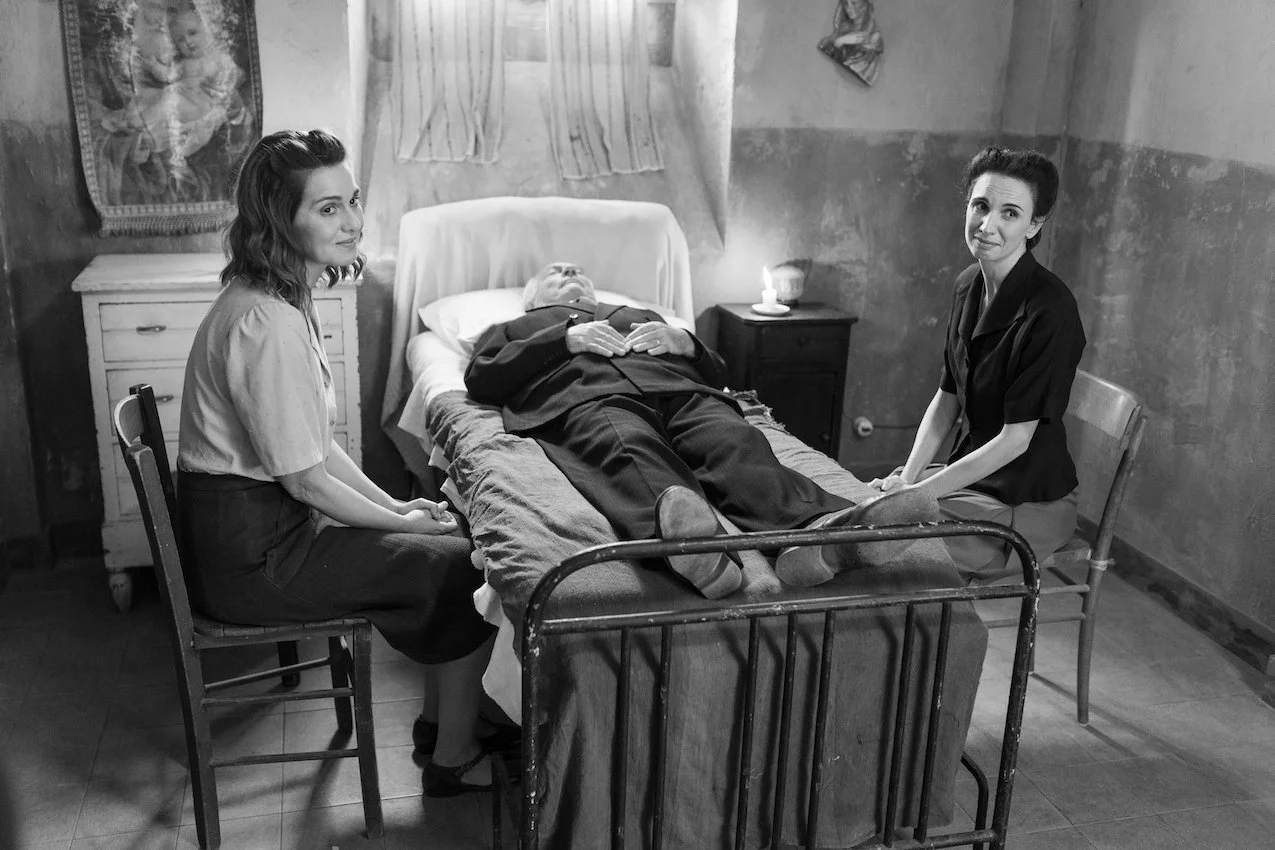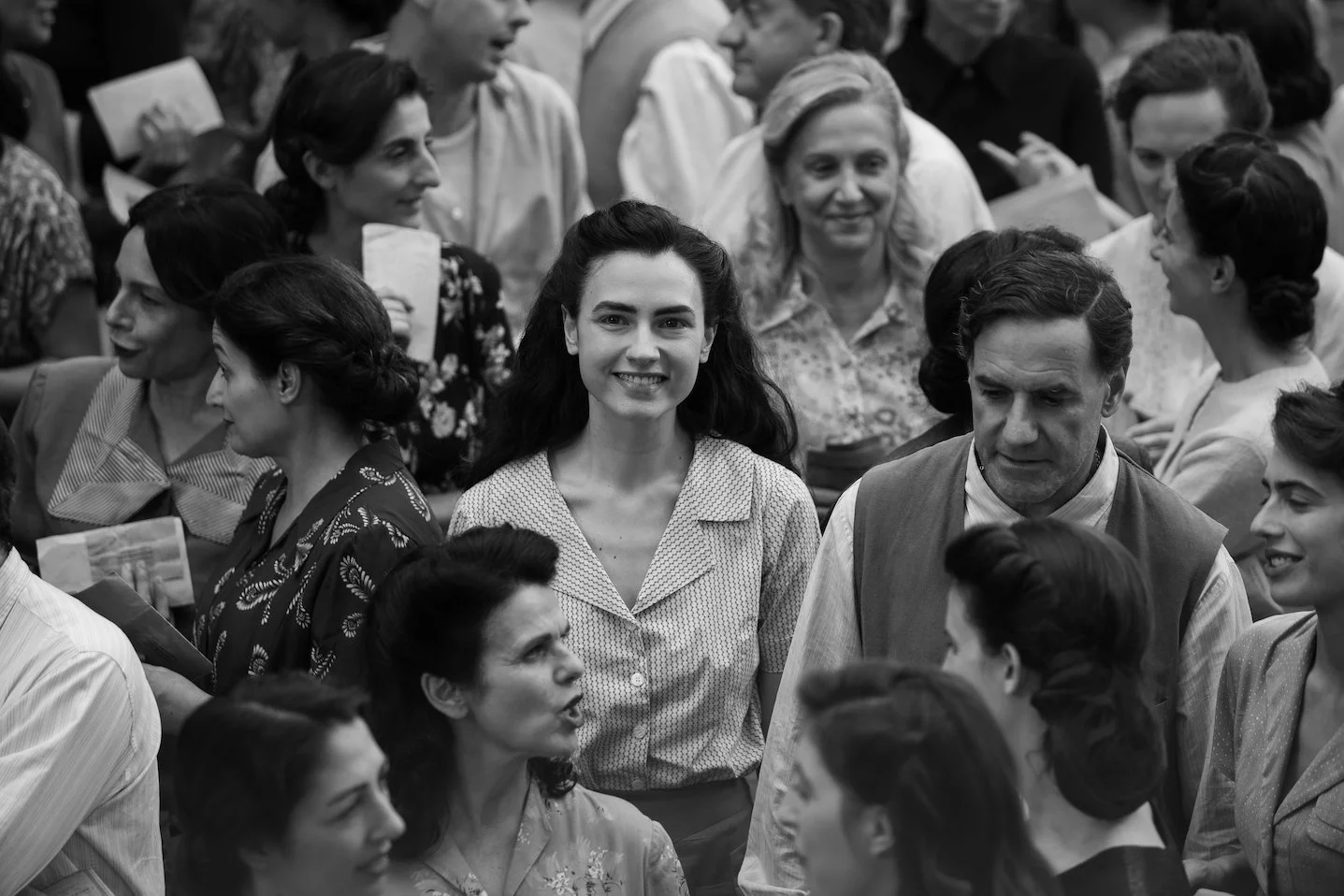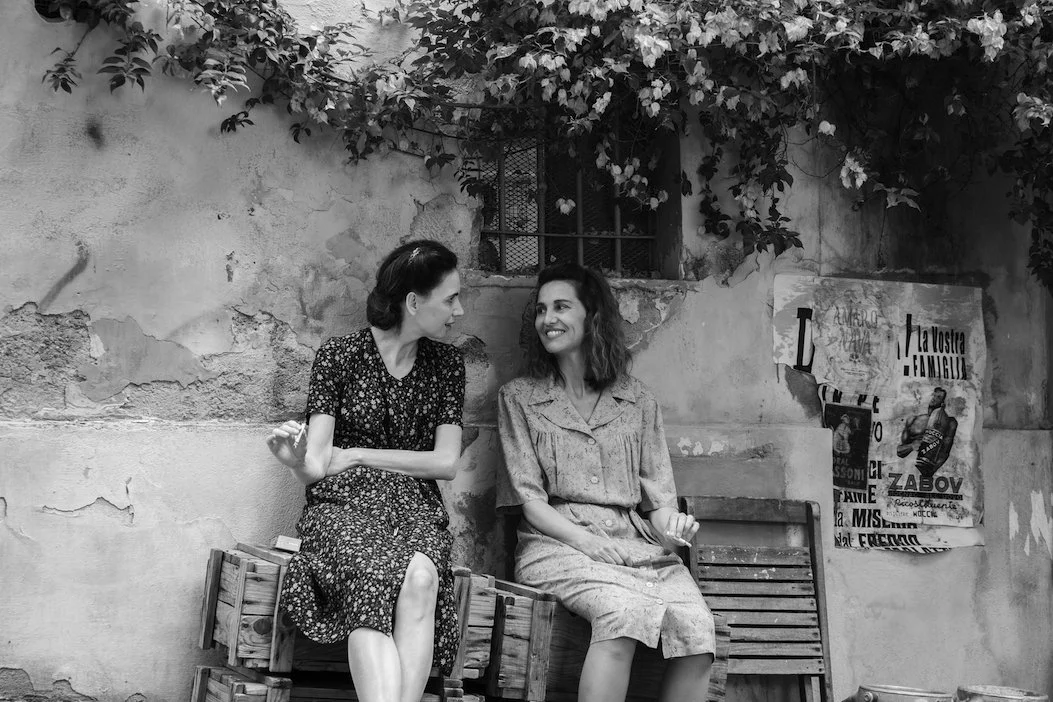Still Waiting…
Better late than never. Paola Cortellesi’s 2023 Italian Box office champ shows ‘Barbie’ how it’s done.
There’s Still Tomorrow
Director: Paola Cortellesi • Writers: Paola Cortellesi, Furio Andreotti, Giulia Calenda
Starring: Paola Cortellesi, Valerio Mastandrea, Romana Maggiora Vergano, Vinicio Marchioni, Yonv Joseph
Italy • 1hr 58mins
Opens Hong Kong Jan 16 • IIB
Grade: A-
Considering popular comedian and screenwriter Paola Cortellesi’s feature film debut There’s Still Tomorrow | C’è ancora domani handily stomped all over Barbie when they hit theatres back in 2023, it would seem Italian women were in the mood for a considerably different brand of feminist rallying cry at the time. And evidently they were in the mood for a neo-neorealist, musical domestic violence dramedy! Far be it from me to fuck with an Italian woman (just… don’t, and I say that with love) but now that the film is finally rolling out beyond la bel paese, we get to see what all the fuss was about; why it was a lightning rod for renewed demands for men to lift their damn knuckles off the ground.
Is the mix of musical flights of fancy, random bursts of comedy, and persistently casual and casually persistent violence going to be too much for some? You bet, but that doesn’t mean Cortellesi isn’t completely confident in where she’s going and how to get there – even with a tiny narrative misstep that can be argued is a cheat (I’m not 100% convinced it is). In setting the film immediately after the Second World War and leaning hard into neorealist traditions through Davide Leone’s evocative black and white cinematography, half of Cortellesi’s job is done. It’s been 80 years and very little’s changed. The cycles remain; they just have new dressing.
There’s Still Tomorrow starts with Delia (Cortellesi) waking up next to her husband Ivano (Valerio Mastandrea, Abel Ferrara’s Pasolini), with the sun shining though their bedroom window. He opens his eyes, they look at each other, she sheepishly smiles – and then he backhands her out of nowhere. She takes it in stride – to her this is Tuesday – and goes about getting the family ready for their post-war day. The family includes her daughter, Marcella (Romana Maggiora Vergano), who is keenly aware of the abuse Delia suffers and silently rages at Delia’s inaction, and her bedridden misogynist father-in-law Ottorino (Giorgio Colangeli). For some reason (we know why) it’s Delia’s job to care for the ol’ bastard. Outside, the streets of Rome are coming back to life after the war. It’s May 1946, Allied GIs are still patrolling the streets and poverty is still rampant, but there’s a general optimism about the coming years. Also? There’s an election a few weeks away that will decide Italy’s future as a republic or a monarchy. No pressure.
Also aware of Delia’s predicament is her pal Marisa (Emanuela Fanelli, fantastico), who isn’t entirely opposed to Delia maybe running away with the local mechanic Nino (Vinicio Marchioni) – the one who got away. The one bright spot in Delia’s life is Marcella’s sudden engagement to the wealthy Giulio Moretti (Francesco Centorame), whose dad looks like the beer guy. Ivano sees the union as a cash register, but Delia’s glee starts to wane when she sees a dynamic similar to her own emerging between Marcella and Giulio. Delia’s shitty marriage is hers to deal with, but damned if she’s going to condemn her daughter to the same.
Though everything up to this moment was graceful and efficient in telling us who these people are, and recreating a broken but resilient post-war Rome, this is where the film really takes off, and where Cortellesi and her regular collaborators, Furio Andreotti and Giulia Calenda (Like a Cat on a Highway), weave all the threads together into a single tapestry that resonates with contemporary audiences. Delia has about seven jobs – seamstress, baker, medic, she’s what we call a gig worker now – and squirrels away a few lire here and there so Marcella can have a new wedding gown. She hides the money from Ivano, the same way she hides a crucial piece of mail from him that Act III hinges on; she’d get a beating for that too. Do things get goofy? Sure. Random dance sequences – what is domestic violence if not a series of practised steps performed again and again – chocolate-based comedy courtesy of an American GI (Yonv Joseph), and a blissfully discordant soundtrack of mid-century Italian pop classics by crooners like Achille Togliani, ’80s nuggets by Fabio Concato and tracks by OutKast and Jon Spencer Blues Explosion make for a tonally challenging film. But in channelling the worn-down-but-still-getting-shit-done energy of neorealist greats like Anna Magnani and Clara Calamai, Cortellesi blends all of There’s Still Tomorrow’s clashing ingredients into a chunky, satisfying soup. And really, the final reveal packs an emotional and, dare I say it, hopeful wallop precisely because we allowed ourselves to fall back on, what? Easy, familiar, old?… narrative expectations. You’re free to call it a cheat. I call it agency.



